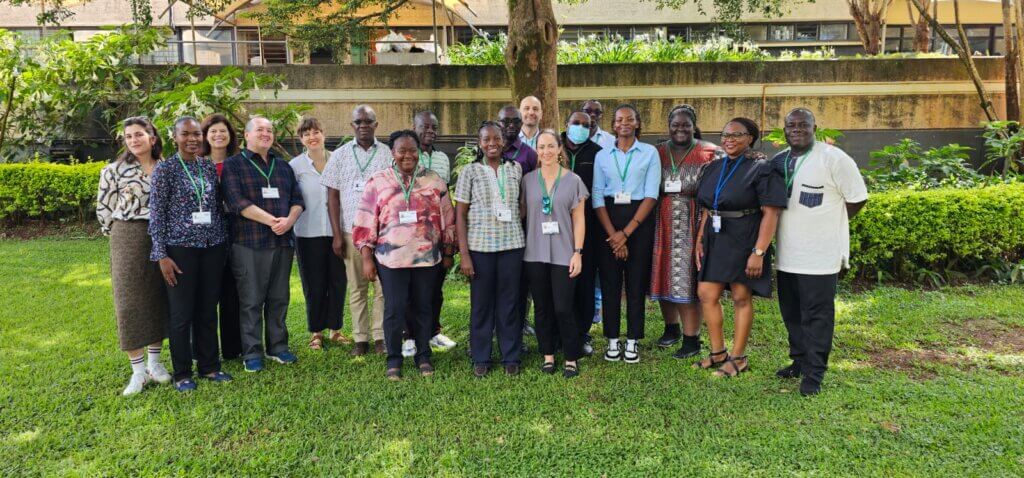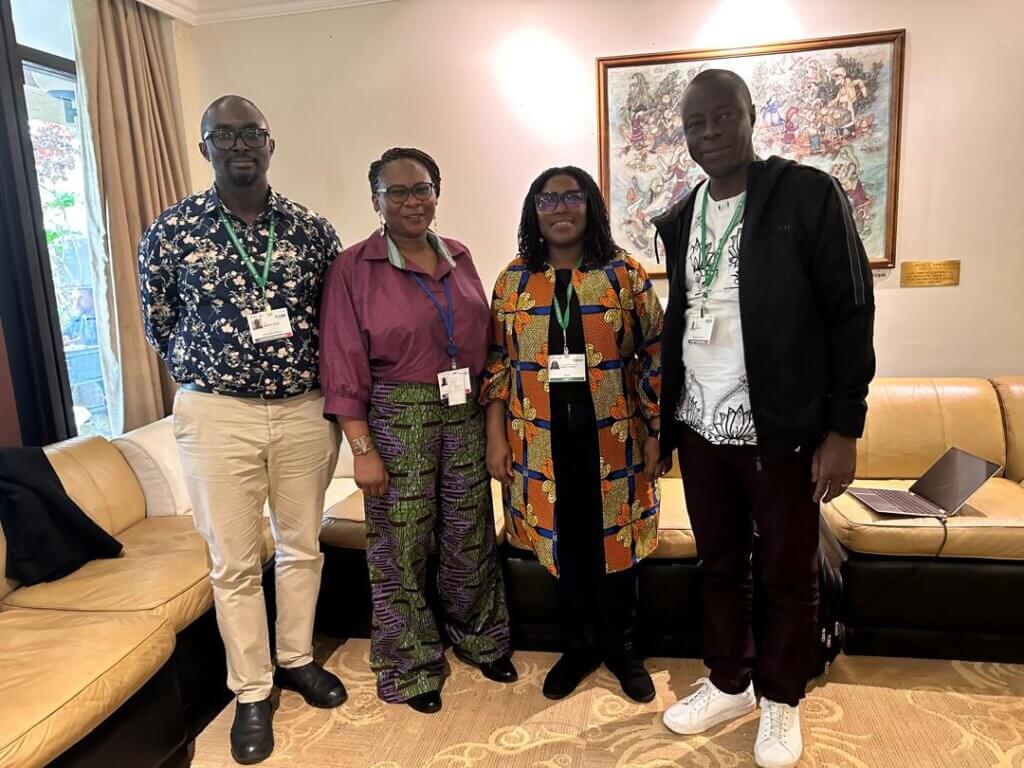Target Malaria team participates in biodiversity negotiations (SBSTTA-26)

Country delegates and observers met May 13-18 in Nairobi, Kenya to lay the foundations for the robust implementation of the Kunming-Montreal Global Biodiversity Framework (GBF), its 23 targets for 2030, and its four long-term goals for 2050.
Target Malaria team members from Burkina Faso, Ghana, and Uganda, along with members from the Outreach Network for Gene Drive Research, joined over 1,000 participants in Nairobi, Kenya, for the 26th Meeting of the Subsidiary Body on Scientific, Technical, and Technological Advice (SBSTTA-26) to the Convention on Biological Diversity (CBD).

The Target Malaria team contributed to discussions about the proposed additional and voluntary guiding materials for risk assessment of living modified organisms containing engineered gene drives, which were proposed for SBSTTA consideration. Dr. Fred Aboagye-Antwi, Principal Investigator for Target Malaria Ghana, delivered a compelling statement on risk assessment, advocating for a comparative approach when evaluating the benefits and risks of gene drives. Dr. Aboagye-Antwi emphasised that comparing the potential impacts of gene drives with those of existing tools used for similar purposes can provide a more comprehensive understanding of the technology. This approach allows experts to make better-informed decisions. He also stressed the importance of considering the risk of inaction. By assessing the potential consequences of maintaining the status quo, stakeholders can appreciate the urgency and potential benefits of considering new technologies like gene drives.
Throughout the event, the team and members of the Outreach Network engaged with attendees, providing updates and insights into gene drive research, ensuring that delegates were well-informed about the progress and potential of gene drive technologies in combating malaria and contributing to biodiversity conservation. Outreach efforts were met with support for the Network’s interventions, including the potential positive impact of synthetic biology approaches for conservation and health, and the need for initiatives and science-based risk assessments.

The team also participated in a side-event hosted by the Outreach Network in collaboration with the Chilean Ministry of the Environment. This side-event focused on how innovative approaches and collaborative multidisciplinary efforts can address current biodiversity and health crises amidst the growing challenges posed by climate change. Experts from Island Conservation, Team Zero Malaria, and the International Livestock Research Institute explored how innovative tools can contribute to preserving biodiversity in their various fields while advancing sustainable development goals, such as the malaria elimination targets.
SBSTTA-26’s recommendations on risk assessment and risk management, synthetic biology, biodiversity and health, and the GBF monitoring framework were of particular interest. The Convention on Biological Diversity’s 16th Conference of the Parties (COP-16) scheduled for October 2024 will set the GBF’s implementation in motion.
Throughout the week, the team heard a common message from various negotiators representing different countries and continents. This message was a strong pledge for capacity development, highlighting that after years of discussions on living modified organisms and synthetic biology, low and middle-income countries still felt that more support was needed for them to be able to seize the opportunities that synthetic biology, and gene drive, could represent for the achievement of their development goals, their biodiversity targets as set in the Kunming-Montreal global biodiversity framework. Target Malaria has been voicing a similar message, encouraging more knowledge exchange between countries and increasing opportunities for academia and research to contribute to this capacity-strengthening efforts.
The Target Malaria team will continue to engage with policymakers in Africa to raise awareness of the potential of gene drive research in addressing global health and biodiversity challenges ahead of CBD COP-26.
